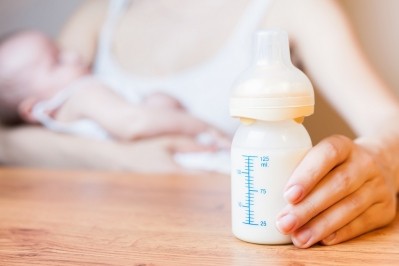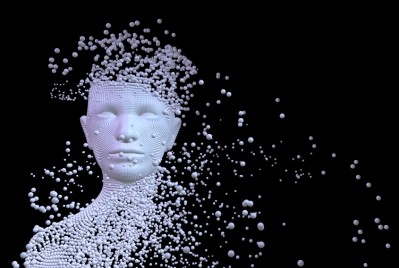Gut health & sleep: Is there potential for pre- and probiotics for sleep improvement?

Consumers are increasingly aware of the detrimental effects of not getting enough sleep, from impaired cognitive function to weight gain.
Data from the Datamonitor Consumer 2014 survey found that “insomnia” was tied for the fourth most prominent health issue of American consumers ranked by percentage, coming in behind stress, tiredness and fatigue (which itself is related to sleep), and allergy. The most worried demographic when it comes to insomnia was middle-age women.
This has led to a rapid growth in the sleep aid category in the US, which is reported to be growing at almost 30% year-on-year and predicted to hit $732 million in 2018, according to Euromonitor International.
The category is dominated by P&G’s ZzzQuil, while natural products and dietary supplements (including melatonin and herbs like Valerian) only occupy a small portion of the market. However, market research data have repeatedly shown consumers would prefer a “natural” alternative to “synthetic” OTC products.
The gut-brain axis
The gut-brain axis – that bidirectional interaction between the gastrointestinal tract and the nervous system – is gaining increasing attention from scientists and consumers. Research is linking the gut microflora to a range of health indications, from general mood to lower levels of anxiety and depression.
Evidence in the scientific literature shows that partial sleep deprivation may change the microbiota, while jet lag and shift work can also produce dysbiosis, which in turn can promote obesity and glucose intolerance.
At the recent IPA World Congress + Probiota Americas event in San Francisco, Dr Paola Tognini from the University of California, Irvine discussed the link between the circadian clock, the microbiota and metabolic homeostasis.
In an extensive article in the Huffington Post, Michael Breus, PhD (a.k.a. The Sleep Doctor), discusses the sleep-gut connection, and the many ways in which the gut microbiota may influence sleep, via effects on mood, stress, pain, and hormones.
Intervention studies
Despite the growing interest, less than a handful of actual clinical trials exploring the potential of modulating the gut microbiota via prebiotics or probiotics on sleep quality have been published.
A recent paper published in Beneficial Microbes reported that daily supplements of a fermented milk product with Lactobacillus casei strain Shirota (the “Yakult” strain) was were associated with improved sleep quality for medical students around the time of their national exams.
“[T]he present findings suggest that daily consumption of [Lactobacillus casei strain Shirota] may help to maintain the perceived quality of sleep during a period of increasing stress by preventing a decrease in the percentage of [stage 3 non-REM] sleep,” wrote the Japanese researchers.
“As far as we know, this is the first report to clearly show the beneficial effects of probiotics on sleep using both subjective questionnaires and objective EEG measures. Because of the complexity of the interactions between probiotics and the host, the complete mechanisms of action of [the probiotic] remain unknown.”
Another study, this time looking at the effects of prebiotics on sleep quality, was published in Frontiers in Behavioral Neuroscience in January. Scientists from the University of Colorado at Denver, the University of California, San Diego and Mead Johnson Nutrition reported that supplementing the diet of lab rats with galactooliosaccharide and polydextrose, plus lactoferrin and milk fat globule membrane, may improve non-REM sleep in early life and a quicker rebound in REM sleep after stress.
“In addition, rats consuming the test diet had an attenuated stress-induced flattening of the diurnal rhythm of [core body temperature] and were protected from the stress-induced decrease in gut microbial alpha diversity,” wrote the scientists.
“These data are the first to show that a diet rich in prebiotics can modulate the sleep/wake cycle both before and after stress and induce stress-protective effects in diurnal physiology and the gut microbiota.”
More studies underway
Other trials are currently ongoing with sleep as a consideration. For example, scientists at the University of North Carolina, Chapel Hill are exploring the role of probiotics in occupational shift workers, while scientists from Uppsala University in Sweden were reportedly running a study looking at the cognitive and metabolic effects of a specific probiotic supplement, with sleep patterns a secondary outcome.
Participant recruitment is also underway by scientists at the University of Ohio on how probiotics may improve the quality of life in children with autism spectrum disorders. Parents will be asked to assess the sleep habits of the their children.
"An interesting question"
Given the consumer interest in both the gut-brain axis and the growing understanding on how sleep quality improves life, if a probiotic or prebiotic company could build a compelling scientific case then a lucrative market awaits:
Commenting on the gut-brain-sleep issue, a spokesperson for the International Probiotics Association told NutraIngredients-USA: “The potential for probiotics to influence sleep is an interesting question. The few studies that have been done have focused on stress or bowel function, and obviously if you can ease stress or anxiety or relieve digestive discomfort, then this could influence sleep.
“It may very well be that probiotics under certain circumstances can improve sleep quality, and if we dig further this could be a fruitful area of future research.”
References:
1. Takada et al. Beneficial Microbes. 2017, Volume 8, Number 2, Pages 153-162. doi: 10.3920/BM2016.0150. “Beneficial effects of Lactobacillus casei strain Shirota on academic stress-induced sleep disturbance in healthy adults: a double-blind, randomised, placebo-controlled trial.”
2. Thompson et al. Frontiers in Behavioral Neuroscience, 2017, Volume 10, Article 240, doi: 10.3389/fnbeh.2016.00240. “Dietary Prebiotics and Bioactive Milk Fractions Improve NREM Sleep, Enhance REM Sleep Rebound and Attenuate the Stress-Induced Decrease in Diurnal Temperature and Gut Microbial Alpha Diversity”
















